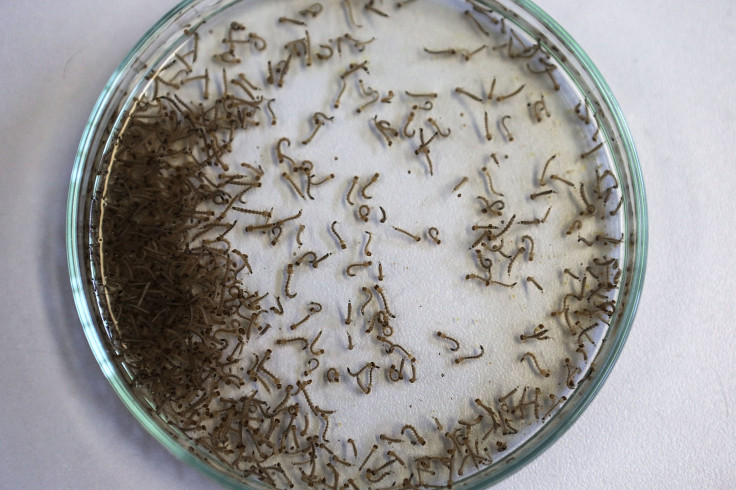Zika-Infected Female Mosquitoes Can Pass Virus On To Offspring, Study Says

Female mosquitoes can pass the Zika virus on to their offspring, a study found. Thus the virus can survive in tough eggs in adverse conditions like cold weather, dry spells and even when the adult mosquito carrying the virus is killed.
The study published Monday in the American Journal of Tropical Medicine and Hygiene concluded that the usage of larvicide is crucial in efforts to curb the spread of the disease.
Researchers from the University of Texas Medical Branch in Galveston injected lab-reared female Aedes aegypti mosquitoes with the virus. The researchers studied the culture of the adult offspring of these mosquitoes and found that one in every 290 mosquitoes was carrying the virus.
“The ratio may sound low,” the study’s co-author Robert Tesh said in a statement, “but when you consider the number of Aedes aegypti in a tropical urban community, it is likely high enough to allow some virus to persist, even when infected adult mosquitoes are killed.”
Other viruses that pass on from the adult mosquitoes to their offspring include dengue and yellow fever. Both illnesses are transmitted by the same Aedes aegypti mosquito. The researchers found that vertical transmission helps the virus survive in inhospitable conditions like cold weather, dry spells and when people gain immunity to the virus due to prior infection or vaccination.
“Now we need to show that vertical transmission occurs in nature,” Tesh said. “Researchers need to collect larvae in areas where the virus is actively circulating -- Latin America and the Caribbean, and now the Miami area. Finding infected larvae in an abandoned tire or water container would be evidence of vertical transmission.”
The World Health Organization declared Zika a global public health emergency in February. The virus is linked to severe birth defects and rarely results in death.
A total of 11,351 cases of Zika virus infection in the U.S. were confirmed by the Centers for Disease Control and Prevention. The first locally transmitted case of the virus was reported in Miami late July.
© Copyright IBTimes 2025. All rights reserved.






















